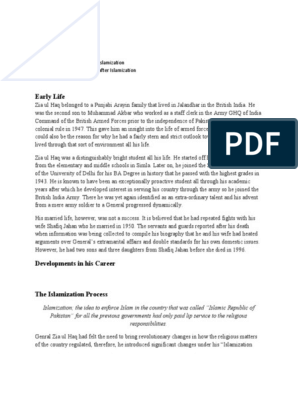0% found this document useful (0 votes)
9 views8 pagesHazrat Usman's Caliphate
Uploaded by
Rafay AslamCopyright
© © All Rights Reserved
We take content rights seriously. If you suspect this is your content, claim it here.
Available Formats
Download as PDF, TXT or read online on Scribd
0% found this document useful (0 votes)
9 views8 pagesHazrat Usman's Caliphate
Uploaded by
Rafay AslamCopyright
© © All Rights Reserved
We take content rights seriously. If you suspect this is your content, claim it here.
Available Formats
Download as PDF, TXT or read online on Scribd
/ 8

































































































